How Cultural Capital Emerged in Gilded Age America: Musical Purification and Cross-Class Inclusion at the New York Philharmonic
- 4:30 pm - 6:00 pm
- 302 Uris Hall
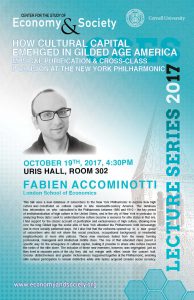




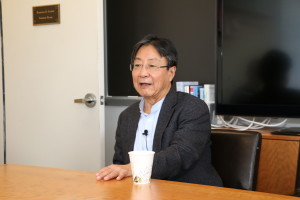

Join CSES in an exciting discussion on the way Mafias organize. Professor Maurizio Catino of the University of Mila, Bicocca will present on the violence and murders in three Italian Mafia organizations. Joining the discussion will be Danile DellaPosta, PhD candidate of Sociology at Cornell University. Do not miss this event on Tuesday, November 22, 4:30PM-6:00PM at Uris Hall Room 302.
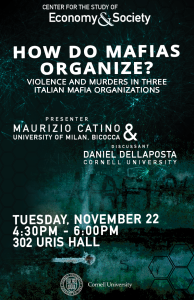
Join CSES this coming Monday, November 21 on a talk about Interethnic Relationships in Contemporary Communities, where Professor Delia Baldassarri of New York University explains how diversity affect in- and out-group solidarity and cooperation. The talk will be at 3:30PM-5:00PM in Uris Hall Room 302, and there will be a reception afterwards.
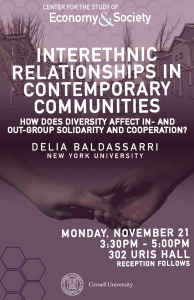
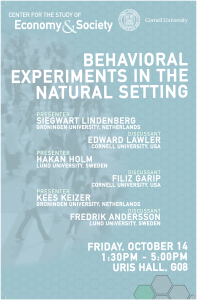
Mary C. Brinton is Reischauer Institute Professor of Sociology and Chair of the Department of Sociology at Harvard University. She will be visiting Cornell September 7-10. Brinton’s research and teaching focus on gender inequality, labor markets, economic sociology, Japanese society, and comparative sociology. Her research combines qualitative and quantitative methods to study institutional change and its effects on individual action, particularly in labor markets. Mary was Professor of Sociology at Cornell from 1998 to 2002.
Congratulations to Sonja Opper, Victor Nee, and Stefan Brehm for their recent publication “Homophily in the career mobility of China’s political elite” in Social Science Research.
We argue that leadership promotion in China’s political elite relies on homophily for signals of trustworthiness and future cooperative behavior more than on economic performance. We first point to the limitation of the economic performance argument from within the framework of China’s specific M-form state structure, and then we proffer a sociological explanation for why higher-level elites in China rely on homophilous associations in recruiting middle-level elites to the top positions of state. Using a unique dataset covering China’s provincial leaders from 1979 to 2011, we develop a homophily index focusing on joint origin, joint education and joint work experience. We trace personal similarities in these respects between provincial leaders and members of China’s supreme decision-making body, the Politbureau’s Standing Committee. We then provide robust evidence confirming the persisting impact of homophilous associations on promotion patterns in post-reform China.
Social Science Research publishes papers devoted to quantitative social science research and methodology. The journal features articles that illustrate the use of quantitative methods to empirically test social science theory. The journal emphasizes research concerned with issues or methods that cut across traditional disciplinary lines. Special attention is given to methods that have been used by only one particular social science discipline, but that may have application to a broader range of areas with an ultimate goal of testing social science theory.
“The great bulk of controls over social behavior are not external but built into the relationships themselves.”— George Homans